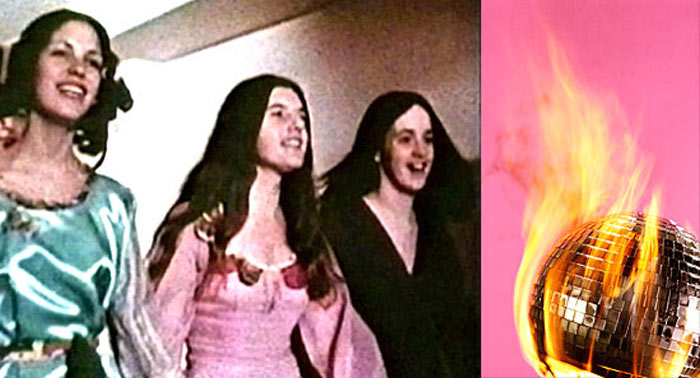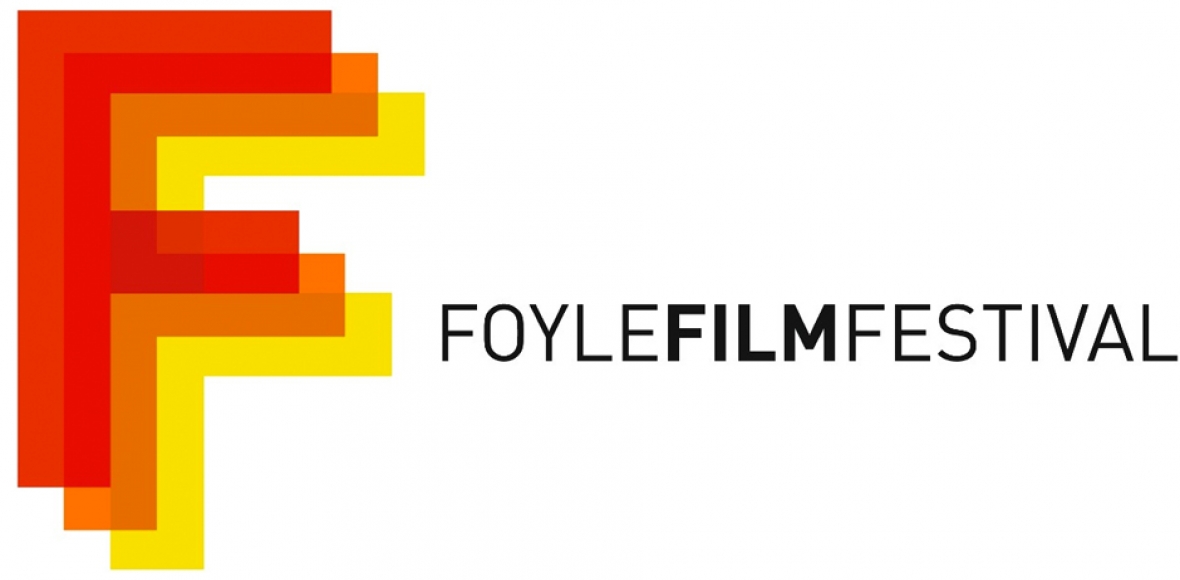
Xanadu: Robert Boyd at the Contest Gallery
LONDONDERRY - The exhibition Xanadu, at the Context Gallery of Londonderry from the 19th of October until the 24th of November, is a four-channel epic video installation in which the New Yorker artist Robert Boyd has been working for years. The artist assembled different archivial footage gathered from news broadcasts, internet, documentaries, cartoons and films in four compositions, namely "Heaven's Little Helper" (2005), "Patriot Act" (2004), "Judgment Day" (2006) and "Exit Strategy". He re-framed the footages in a composition of fast, sharp, second-long images accompanied by a 70s disco music, a music associated with black, Latino and gay subcultures, joining them as in a MTV-music video.
In the fragmentation of the images hides a subtle fate, given in a certain sense by the musical continuum, that seems to secrete an inconscious collective willingness of self-mass-destruction. From shots of Hitler to Bush, from Reagan to Pope John Paul II, from religious fundamentalists all over the globe to scenes of war, genocide and doomsday cult, the visitor is cast into a narcotic series of quick frames that leaves him astonished in the attempt to register the strong sense experience in an intellegible logical sequence.
We interviewed the curator Gregory McCartney to find out something more about this astonishing work.
How and where did you meet Robert Boyd and why did you choose this work?
I met him the first time in New York. I saw the show in the Participants Inc. Gallery , where I was meeting the Gallery Director. As I saw it, I thought that it would have been interesting to see how it would translate in the reality of Derry. I discussed the idea with the artist and he was enthusiastic. Indeed the audiences of Derry and New York are different, we are more used to scenes of violence, death and horrors than the Americans, at least up to September 11. I wanted to hear an American voice articulating the American perspective of a community which sometimes we forget to be built on many different nationalities and life styles.
Could you tell us something about "Xanadu"?
Xanadu was the summer capital of Kublai Khan 's Mongol Empire, which covered much of Asia and a part of the eastern Europe. Xanadu has been used in recent times in popular culture to represent the foolish excess of opulent lifestyles. It also ixpired the Coleridge's poem Kubla Khan, and was the name of Charles Foster Kane 's Mansion in the Classic Movie Citizen Kane. In this case Xanadu is a musical film directed by Robert Greenwald. The film's title track, "Xanadu", was a major hit for the Australian pop singer Olivia Newton-John, that the visitor can listen in this exhibition. The video is divided in four pieces. The first one is "Heaven's Little helper", which is about cult leaders. It makes the point that the people allowed them to be lead, maybe just because they where empty, they were missing something. The leaders, which most of the times were very smart people, just filled the void. The second part, called "Patriot Act", shows various dictators. People need to believe in something, but when they relize that is not what they wanted sometimes is too late. The third part is "Judgmental Day". This one is about some fundamentalists and preachers: even in this case the people allow them to be lead, often they would go to death for them. The correation goes straight to the Tower Attacs. However illogical it may seem, they listen to them and follow them.
Xanadu is a montage of images that goes quicker and quicker to an apocalyptic ending.
The use of the disco music is very interesting. Disco originated as underground music in Paris and Berlin; in the '70s became associated with the gay American scene. Robert Boyd too is a gay, his parents were Catholic fundamentalists. The songs of the work are by Madonna, Britney Spears and Olivia Newton-John. Disco music is a feel-good music that makes a striking contrast with the apocalyptic images. In the second gallery there's the piece "Exit strategy": there you find scenes of cult leaders' speechs, as Charles Manson, Brenda McCann of Manson's Family, Bhagwan Shree Rajneesh, Shoko Asahara and others.
How has been the feedback of the audience until now? Who is the public of the Context Gallery?
The reactions of the audience was very interesting, really positive. People will remember this exhibition, everyone who enter it is enraptured by the images because it's hard to look away, they strike people's imagination. I think that this is one of the most popular exhibition by now. The Context public is everybody: is Derry, Ireland, all the world. Our mission is to make contemporary art popular, we're happy to help artists, creators.
What kind of experience do you expect the people to have in this show?
Hopefully the show would make them think, question leaders, politicians, question themselves. It aims to make them aware and self-aware, allow themselves not to be lead anymore. It wants them to engage directly with society, to make them think.
How do you think is the general situation of contemporary art in Northen ireland?
It's underfounded, it needs more money, particularly in Derry. We need to make people experience contemporary art, we'd like it to be a everyday thing of their lives. However, there are some good galleries in Derry which give good opportunities to see it.
Old Age Kicks
Hanging on the walls of Alessandro Negrini’s living room in Derry there are posters of Casablanca, Charlie Chaplin, Breakfast at Tiffany's, Alda Merini smoking a cigarette and Italian directors as Rossellini, De Sica and Fellini. “Everything started for fun. As I always say, I'm a movie director by mistake, in the sense that I wanted to do something else in my life, like being an hairdresser,” he said. Paradiso, his last documentary, shot in Derry, will be screened today at the Arcipelago Rome Film Festival.
BACON'S GAMBLE
You visit his studio for the first time. There are tubes of paint everywhere, papers scattered on the floor, a broken mirror, slashed canvases, paint on the walls. Then you see the paintings. At first you notice a figure messed up by a series of spots and deforming lines. You look more carefully. You notice that the overall image has something – a movement, a peculiar composition of colours given just by those articulated marks.

Memory and Conscience at the Foyle Film Festival
Three American filmmakers at the Foyle Film Festival this year raise questions about memory and conscience. The Foyle Film Festival has been taking place every year in Londonderry since 1987 and is regarded as one of the most important events in Northern Ireland. It offers a range of contemporary Irish and European movies and documentaries, workshops, meetings and debates.